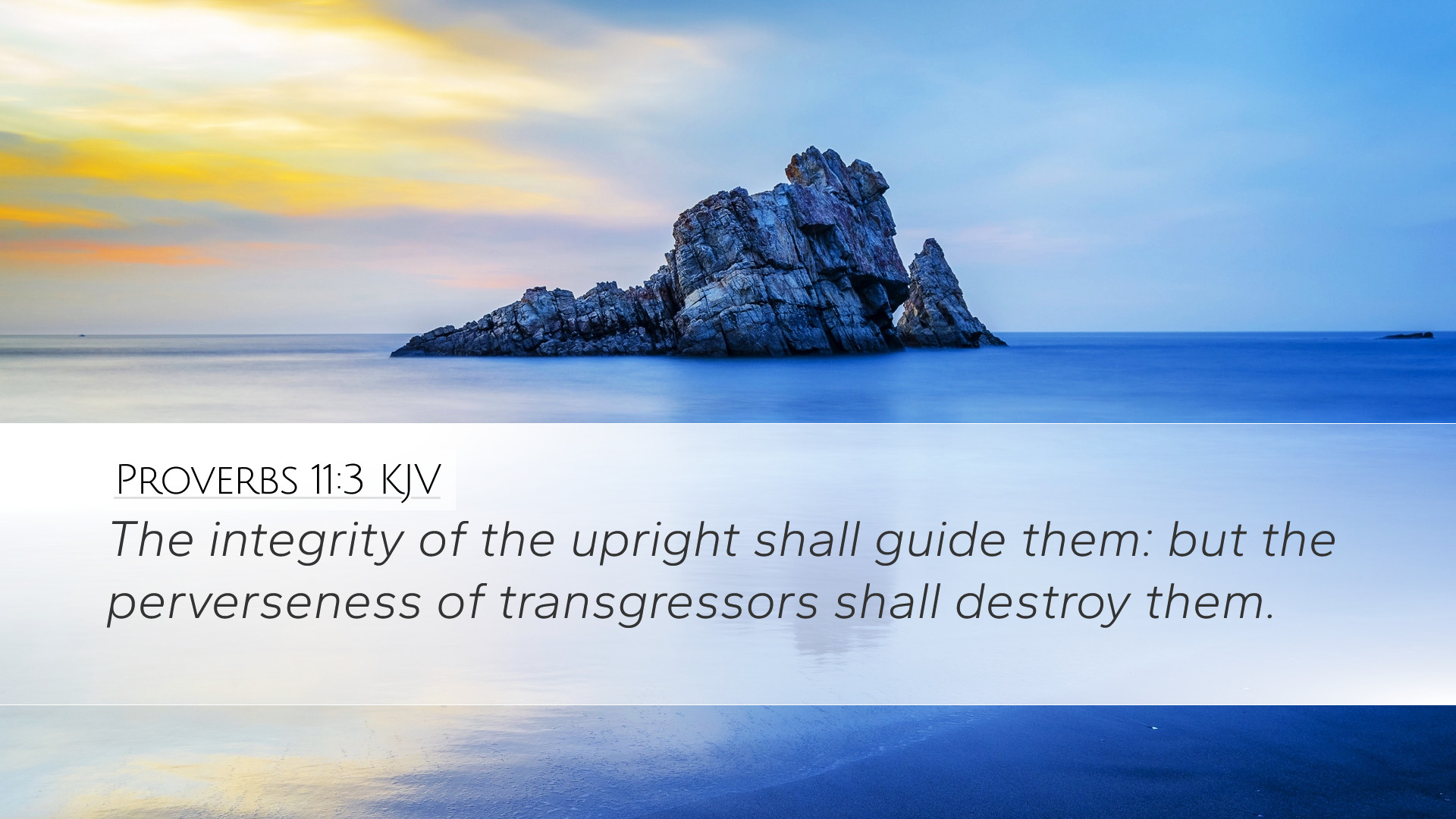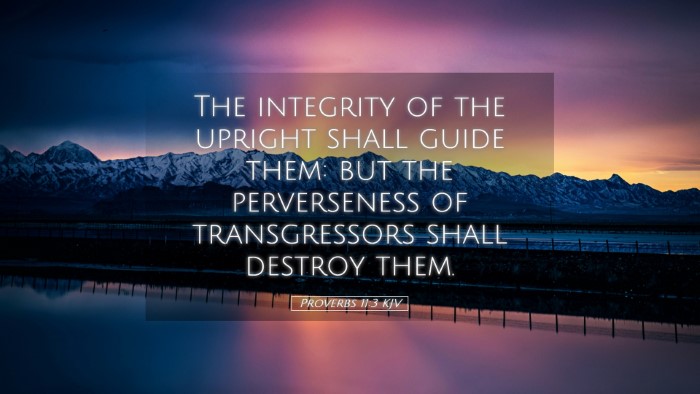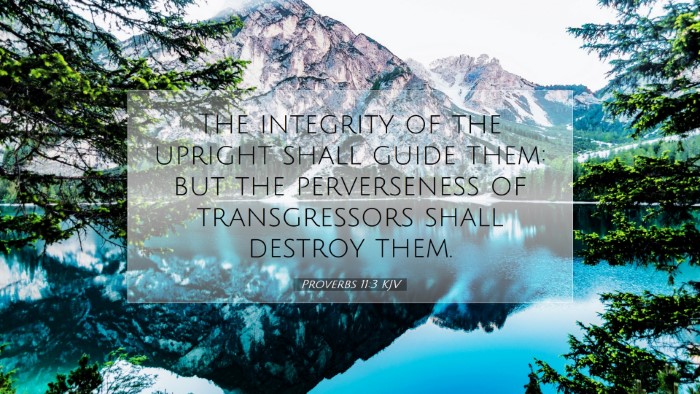Proverbs 11:3 Commentary
Verse: "The integrity of the upright shall guide them: but the perverseness of transgressors shall destroy them." (Proverbs 11:3, KJV)
Introduction
This verse encapsulates the foundational theme of moral character presented throughout the book of Proverbs. The stark contrast between the upright and the transgressors serves to highlight the paths offered to humanity, emphasizing that the choices individuals make have profound consequences.
Understanding "Integrity" and "Uprightness"
Matthew Henry elaborates on the term "integrity," defining it as a soundness of mind and character. To be upright is to be honest and just in all one's dealings. Henry points out that integrity is not merely about outward actions but reflects an inner disposition that aligns with God’s commandments.
Albert Barnes notes that integrity acts as a guide, suggesting a leader or director of one’s life. This guidance implies the necessity for integrity in both personal and communal decision-making. Where there is integrity, there is a moral compass directing the footsteps of the person towards righteousness.
The Outcome of Integrity
The verse asserts that the integrity of the upright shall guide them. This assertion opens a conversation about the benefits of a life lived in honesty and morality. Adam Clarke states that living with integrity leads to wise decisions that are divinely sanctioned, allowing individuals to navigate their lives effectively. Such guidance is not worldly but stems from divine wisdom.
Furthermore, Henry emphasizes that integrity leads to peace of mind and assurance from God, as those living righteously can trust in divine providence. This peace acts as a lamp to one’s feet, illuminating the path ahead.
The Contrast with Transgressors
In contrast, the verse warns about the "perverseness of transgressors." Barnes interprets transgressors as those who knowingly violate moral laws. Their actions bring destruction not only upon themselves but also upon the community. Such individuals lack the guidance that integrity provides, leading them to disastrous outcomes.
Clarke discusses the inevitable fall that comes from a life of wickedness and disobedience. He suggests that transgressors often face the consequences of their actions, reflecting the biblical principle of sowing and reaping. This destruction is both a present reality and a future consequence of divine judgment.
Practical Applications for Pastors and Theologians
-
Emphasizing Integrity:
Leaders in the church should model integrity, inspiring their congregations through their example. Integrity must be a foundational theme in preaching, guiding believers to acknowledge its importance in their spiritual walk.
-
Warning Against Perversion:
Teaching on the dangers of transgressing moral laws is critical. Pastors are called to remind their congregations that choices made during moments of temptation can lead to long-term consequences, often affecting others beyond the individual.
-
Encouraging Rehabilitation:
In dealing with those who have erred, the church must provide avenues for reconciliation and restoration back into integrity, showing that repentance is available and that one can return to a path of righteousness.
The Role of Community
The integrity of individuals contributes significantly to the entire community’s spiritual and moral fabric. Henry reminds us that righteousness in the individual has a ripple effect, positively influencing families, friendships, and congregations.
Conversely, transgressors disrupt this harmony. Clarke emphasizes the communal consequences of individual choices, noting that sin does not exist in a vacuum; it can lead to widespread corruption within society. Therefore, integrity should be underscored as a collective virtue that all should strive towards.
Conclusion
Proverbs 11:3 serves as a profound reminder about the dual pathways of life and the critical importance of integrity. The dialogue between integrity and perversity reveals deep spiritual truths about the nature of sin and the blessing of a righteous life. As such, it calls pastors, students, and scholars to reflect on their practices and teachings, ensuring that integrity remains a central theme in their work.
May we strive to be guided by integrity and lead others toward the same, fostering a community that honors God through righteous living.


